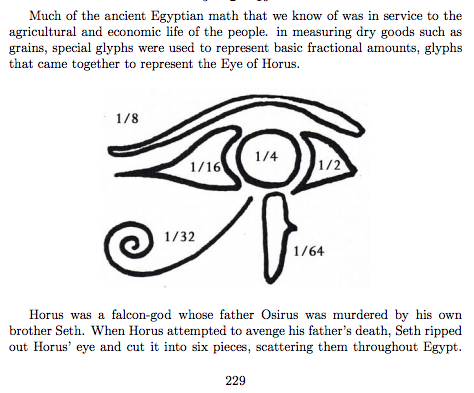I am an old man trying to learn math, starting off with prealgebra and need a good comprehensive book for it. The book should NOT contain annoying images like in most American textbooks or anything irritating, just serious math. It should be rigorous, comprehensive and above all; serious.
-
5$\begingroup$ H.H. Wu (from Berkeley) has a couple of "rigorous, comprehensive" textbooks in this direction; see my previous answer at MESE 1857 (and, even earlier, at MESE 1252). $\endgroup$– Benjamin DickmanCommented Jun 12, 2015 at 0:50
-
$\begingroup$ Look for a prealgebra book and an Algebra I book by Saxon. Part of learning math is working sample problems until you understand them and you made need to obtain several used math books to provide good explanations for a given problem and enough examples to work through till you understand them. Some books give better explanations than others and you may need to build your own math library through book sales, etc. This advice was given to me by a college math professor. You should check out Schaums outline also. A $\endgroup$– Allen SeayCommented Jun 20, 2015 at 23:59
-
1$\begingroup$ Look at Schaum's Outlines. They will be less verbose and more practical than the typical rocketship-picture filled doorstops that schools purchase. Like a simple review grammar. $\endgroup$– guestCommented Oct 12, 2018 at 5:06
-
$\begingroup$ Also, whatever book you do use, you should learn solidly. But that is actually more important than comprehensiveness. Most texts are fine and if anything lean to being too comprehensive (so instructors can pick the chapters they want). Just take one suitable for self study (with answers) and learn it well. If you missed some lesser topic (e.g. solving the cubic/quartic), you can always master it later, as needed, so long as you have solid fundamentals. $\endgroup$– guestCommented Oct 12, 2018 at 5:09
-
$\begingroup$ Also take a look at Stroud's. It is programmed instruction so very suitable to study without a teacher. $\endgroup$– guestCommented Oct 12, 2018 at 5:10
4 Answers
This California college has a no-frills $602$-page textbook
available for free PDF download:
College of the Redwoods Mathematics Prealgebra Textbook. 2012-13. (PublisherLink).
There was a free website for download in 2015, but apparently no more. Before its demise, I browsed through book.
What "fluff" the textbook authors include is hardly fluff; rather, educational:

Note the sum $$ \frac{1}{2} + \frac{1}{4} + \frac{1}{8} + \frac{1}{16} + \frac{1}{32} + \frac{1}{64} = \frac{63}{64} $$ is missing $\frac{1}{64}$ of Horus's eye.
-
-
$\begingroup$ @EM4: Thanks for letting me know. Updated accordingly. $\endgroup$ Commented Dec 30, 2020 at 1:29
-
$\begingroup$ I don't have enough reputation to comment, but I believe I've found a link to the book mentioned by the top answer: archive.org/details/Prealgebra_201906/page/n9/mode/2up Hope someone can let him know :) $\endgroup$ Commented Jul 15, 2021 at 22:25
Art of Problem Solving has a pre-algebra text that gets glowing reviews. I would expect it to be complete and rigorous.
If you don't mind something a bit old-fashioned, you can use C. V. Durell's arithmetic and algebra textbooks. These were standard in good schools in England at one time, and continued to be widely used into the fifties and sixties. They're concise and have good problems, with answers. The explanations on fractions are a bit shorter than one would like (I think because they're assumed to have been learned in elementary school), but the new subjects are explained reasonably well.
You can find several of them online here.
If you can read French, then some of the books by Lebossé and Hémery listed here are good and downloadable online. Start with "quatrième" if you already know fractions well. Otherwise start with "cinquième."
These books are from the fifties, but the presentation is modern. Few books I've encountered at that level are as serious about proofs (within reason for that stage of learning). The geometry sections are excellent - the French taught geometry in a much much more sensible way than the British or the Americans did (before all of them stopped teaching it anyway).
Although the tone of the books I've mentioned is serious, they are school books. If you prefer something more recent and specifically targeted at adults, "Teach Yourself Mathematics: A Complete Introduction" might fit the bill. It provides better explanations of why things are the way they are than do most texts of that variety.
A comprehensive set of grade 7/8 books from the 1970s which is mathematically sound is School Mathematics I and II by Eicholz. However, they are not very concise and do have a lot of illustrations (though less than these days). The explanations are very complete for that level. It seems these books can be obtained cheaply from Abebooks.
These books can be followed with Algebra by Richard E Johnson, which meets your requirements perfectly except that it is for algebra rather than pre-algebra.
Crosslink to a similar question on Mathexchange:preAlgebra-books
Recommended there; and emphasized here: I like the book by Gelfand and Shen as a "plain math / no thrill" book:
Gelfand, Shen (2003). Algebra. Boston: Birkhäuser